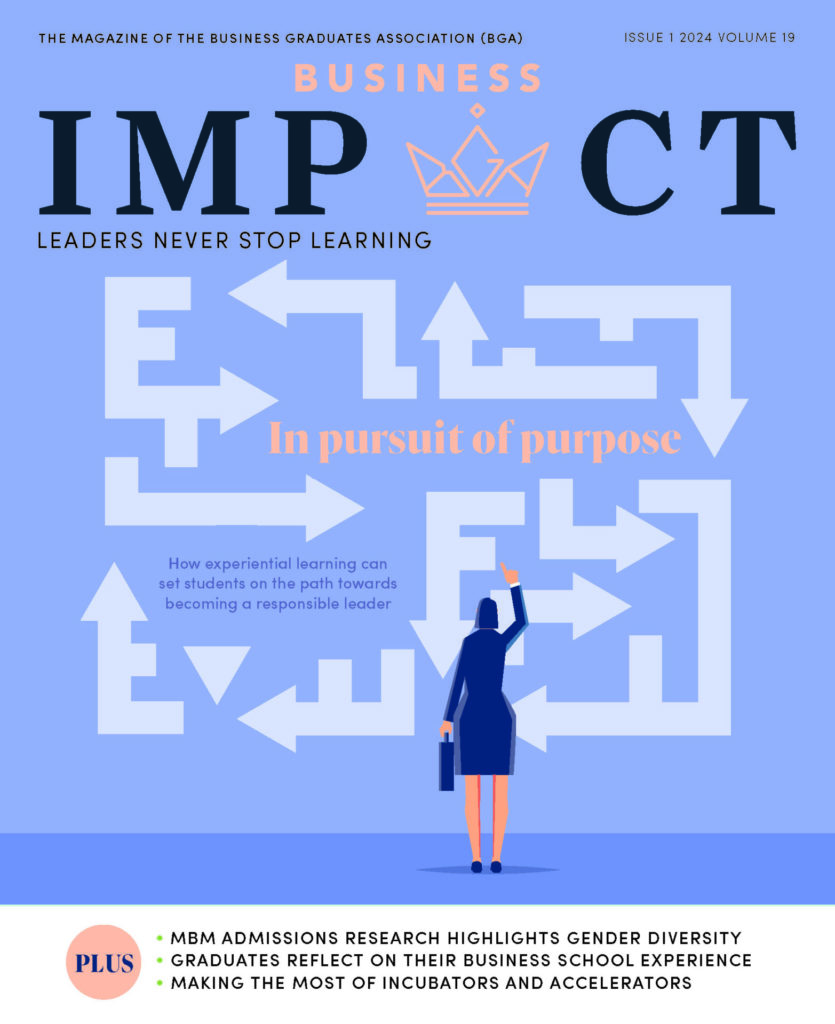Business schools are in trouble and it’s not just because of artificial intelligence (AI). The challenges of our times cut to the heart of business education and of business and capitalism itself. This became clear to me as a guest lecturer at several reputable business schools when my storytelling sessions got similar responses from executive MBA students – and their faculties.
Responses from students usually go: “We need more of this! Why didn’t we have storytelling at the start rather than the end of the semester? We could have used it in all our assignments.” Meanwhile, independent responses from faculty members tend to be: “This was great. Too bad we don’t have any room in the curriculum to learn and practice more.”
Some argue that storytelling skills – like entrepreneurship – must be earned rather than learned. Fair enough. While a strong theoretical foundation can help accelerate learning, ultimately you master these skills in practice. However, the typical response from business schools goes much deeper. It shows they may not have grasped the true need for storytelling. Neither in business, which they teach, nor in their business.
The need for purpose
The effectiveness of traditional business education is under scrutiny and for good reason. When a company replaces a CEO who has no business degree with one who does, they may be in for a disappointment. In research from MIT, there was no evidence that a business graduate at the helm increased sales, productivity or investment.
Reducing pay for the workforce can boost profitability and share price in the short term. Whether corporate performance improves in the long term is another matter. As an investor, I was shocked to learn that over the last century, all net US stock exchange wealth was generated by just four per cent of listed companies.
Regardless of one’s stance on stakeholder capitalism, the rising interest in, and need for, business ‘purpose’ is an undeniable reality. Ironically, the relentless pursuit of profit maximisation failed to generate wealth for the vast majority. That’s before we factor in the relational, health and environmental costs. Could pursuing holistic value creation instead improve financial value creation, too? This is what Mars Inc. and Oxford University’s Saïd Business School have discovered over the course of 15 years of research on the ‘Economics of Mutuality’.
Ultimately, at the individual and organisational level, long-term, performance-boosting management is purpose-driven. However, driving purpose-based performance requires a different mindset and skillset to those classically taught at business schools. It requires what I call ‘narrative intelligence’, the ability to influence an ecosystem by recognising and reiterating, reframing or replacing stories.
So, while a few pioneering business schools do now teach storytelling, are they equipping students with narrative competence equal to this mission-critical task? In my experience, it isn’t even on the radar. This is curious, given that storytelling is central to delivering their own business value.
After all, what makes a ‘great’ teacher great? One distinguishing mark of an excellent teacher is the ability to hold the attention of students. That is not only due to mastery of the content which needs to be communicated, but also the skill with which the content is communicated. Every student knows from experience that even business cases can be taught less than brilliantly – usually because the teacher hasn’t integrated storytelling techniques in the way they lead the discussion of the business case.
Do excellent teachers integrate storytelling techniques because they were lucky enough to formally or systematically learn such techniques? This is unlikely, because there was practically no awareness of the importance of storytelling in business education until recently. In other words, the current generation of excellent teachers are good storytellers because of talent and instinct or simply because they observed excellent storytellers in action. It was caught rather than taught.
Narratives that matter
Today, as more and more business schools are becoming aware that storytelling is an essential skill for business school professors, they are beginning to help their own professors learn the skills involved. But as storytelling is essential in business itself, why isn’t it taught properly alongside other business disciplines such as finance, business models, competitor analysis, organisation behaviour and strategy?
In addition, is it only individual class sessions that need to be storified? Is it not also the way entire modules are taught? How about the curriculum as a whole? Far too many students graduate from business school with some sense of the individual subjects or modules they studied, but no overall sense of how the different modules fit together. They received no framework regarding business as a whole.
This brings us back to companies embracing purpose as something central to their business models, rather than peripheral. To get the best results, business schools, like business, need to zoom out their focus on numbers and frame them within narratives that matter. It’s high time for business schools to embrace the transformative power of storytelling, not just as an add-on, but as a core component of their mission. Doing so will help revitalise the businesses they are preparing tomorrow’s leaders to serve. With generative AI set to disrupt both arenas and empower changemakers, the timing could hardly be better, nor more urgent.
Headline image credit: Nathan Trampe on Unsplash








